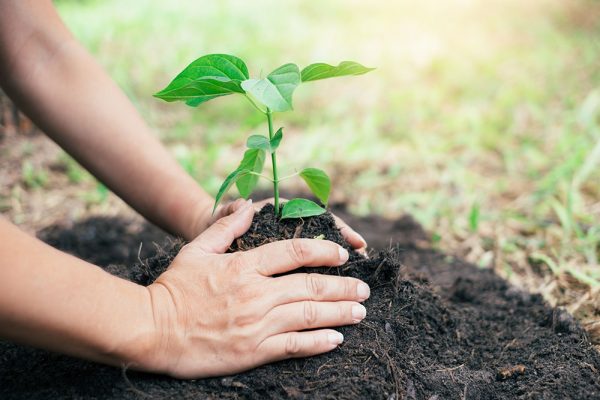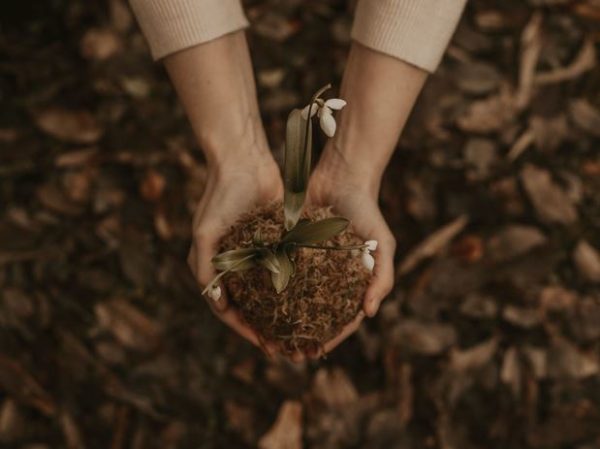 Gardening has been a part of human existence since the beginning. It not only helps sustain life but also brings joy and satisfaction. But how do you get started? Gardening can be intimidating because there is so much jargon around gardening to understand and figure out what plants will grow well for you where you live. When we boil it down, gardening is one very basic act; contrary to what’s seen in gardening catalogs or online supply stores, growing just requires a little knowledge and planning-and some patience! Luckily if this sounds like your first foray into garden cultivation-even as an inexperienced gardener-you can still start with success using these tips!
Gardening has been a part of human existence since the beginning. It not only helps sustain life but also brings joy and satisfaction. But how do you get started? Gardening can be intimidating because there is so much jargon around gardening to understand and figure out what plants will grow well for you where you live. When we boil it down, gardening is one very basic act; contrary to what’s seen in gardening catalogs or online supply stores, growing just requires a little knowledge and planning-and some patience! Luckily if this sounds like your first foray into garden cultivation-even as an inexperienced gardener-you can still start with success using these tips!
Gardening Terminologies
Buying plants is easy when you know what to look for. There will be labels that identify how long the plant will live and its lifecycle, which consists of three different types: annuals, biennials, and perennials. Annuals grow for one season before they die out; biennials do it in two years, while perennials return yearly or more often after a year’s worth of growth.
If you are buying plants, you might also be interested in learning more about the terms. Some people might be aware that they can buy seedlings, which are simply just the transformation of a seed into a plant. You can even collect bulbs, which go in the ground during the off-season and bloom seasons later on.
The garden center, as well as online sources, will list a description of plants that can take a bit of understanding too. Deciduous trees lose their leaves each fall or winter, while evergreen shrubs keep theirs throughout the seasons. Groundcovers are low-growing and spreading plants that never grow taller than about one foot. Ornamental plants grown mostly for visual appeals such as flowers but not for consumption or other use are called hybrids because they have been crossbred to encourage specific traits like being able to tolerate fewer water requirements or having a sweeter taste.
You Might Like: Celebrating Summer Solstice in Asheville
Get to Know Your Soil
Understanding the composition of the soil is crucial to your gardening success. Fortunately, you don’t need any special education; grab a kit from the garden center or take some dirt to your regional extension center and they’ll do all the analysis for you!
Once you know the type of soil (thick and slow-draining for clay, rich with sand, silt and clay for loamy, sandy if there is a lot of sand due to lack of soil content), then you will be able to use different methods in order to balance it.
Different plants require different soil compositions, which means how acidic or alkaline it is. In order to find out the pH level of your soil, you need to test- a number will be given on a scale from 0-14. Seven is considered neutral and above seven would mean that the acidity in your plant’s environment is high, while below 7 it indicates an alkaline environment for some plants. Most common houseplants prefer having slightly acidic soil with a pH around 6 -6 1/2 . With this information, mixed-in materials can be added that either raise or lower the numbers depending on what you want for your particular plant species.
If your soil is too compact, you can buy or build raised beds that hold added soil aboveground for a plant-friendly environment.
Check the Lighting
 Spending time in your yard before figuring out where to plant a garden is important because most vegetables grown during the primary gardening season need direct sunlight, meaning at least six hours of it. Some plants are more tolerant of partial sun and can handle more shade, so watch your sun throughout the season to understand how much light there is. Besides sitting around all day with nothing else but an infinite amount of sunshine on demand, consider whether you can easily access water or not and if you’ll need fencing for animals like deer.
Spending time in your yard before figuring out where to plant a garden is important because most vegetables grown during the primary gardening season need direct sunlight, meaning at least six hours of it. Some plants are more tolerant of partial sun and can handle more shade, so watch your sun throughout the season to understand how much light there is. Besides sitting around all day with nothing else but an infinite amount of sunshine on demand, consider whether you can easily access water or not and if you’ll need fencing for animals like deer.
More Reading: The Appalachian Ecosystem: Sharing the Mountains with Wildlife
Heirloom, invasive and native, non-native plants
Having a good plan is a key element in gardening. While you will learn a lot through trial and error, it helps to know what plants suit your climate and conditions best before making a purchase (which can also depend on whether or not they’re native). Native plants are well equipped for the climate in your area because they’ve been growing there for hundreds of years – meaning these plants really thrive there! Non-native varieties may do okay, but their success doesn’t necessarily come with the guarantee that those of native ones. The term heirloom means it has continuously been pollinated from the same host plant, which hasn’t changed over 50 years or more. This includes ‘heirloom tomatoes’ as food gardens like this often use them too.
Lastly, Invasive species can be found in your backyard and from accidental planting. They are pretty, but they will not only thrive but also take over without any precautions to restrain them. Invasive plants can cause ecosystem disruptions as well.
Hardiness Zones
Here is another way to know how successful you will be in the garden. Knowing your hardiness zone, as identified by USDA Plant Hardiness Zone Map, will help you pick plants that are most likely to thrive if planted there. This information can also help when planting cool-weather versus warm-weather crops within your region.
Maintain a Record
A log is an important tool for gardening success and can be as simple as a small notebook or extended to a more comprehensive computer spreadsheet. The goal simply is to keep track of what you plant, when you plant it and, where it’s planted, whether the plants have suffered from disease or pest issues, how long they take until maturity (when harvesting).
Now is a great time to sell! If you or someone you know is considering selling your home or land, we would be happy to offer a complimentary consultation. Call New Earth AVL Realty today or Contact Us.
How can I connect you to be of service? Call New Earth AVL Realty to learn more today.
If buying a home, or selling your house in 2021 is your goal, call me today.
Many blessings,
Jason Martini
828-515-1771
PS: Who do you know that I can serve?… Who is choosing to buy, sell, or invest in real estate in AVL or Beyond? I Am grateful for your referrals! Your friends and family will thank you for connecting us!
PSS. Please feel free to comment below and let us know how you liked this blog post and what it brought up in you. And by all means… share it on your social sites too!

